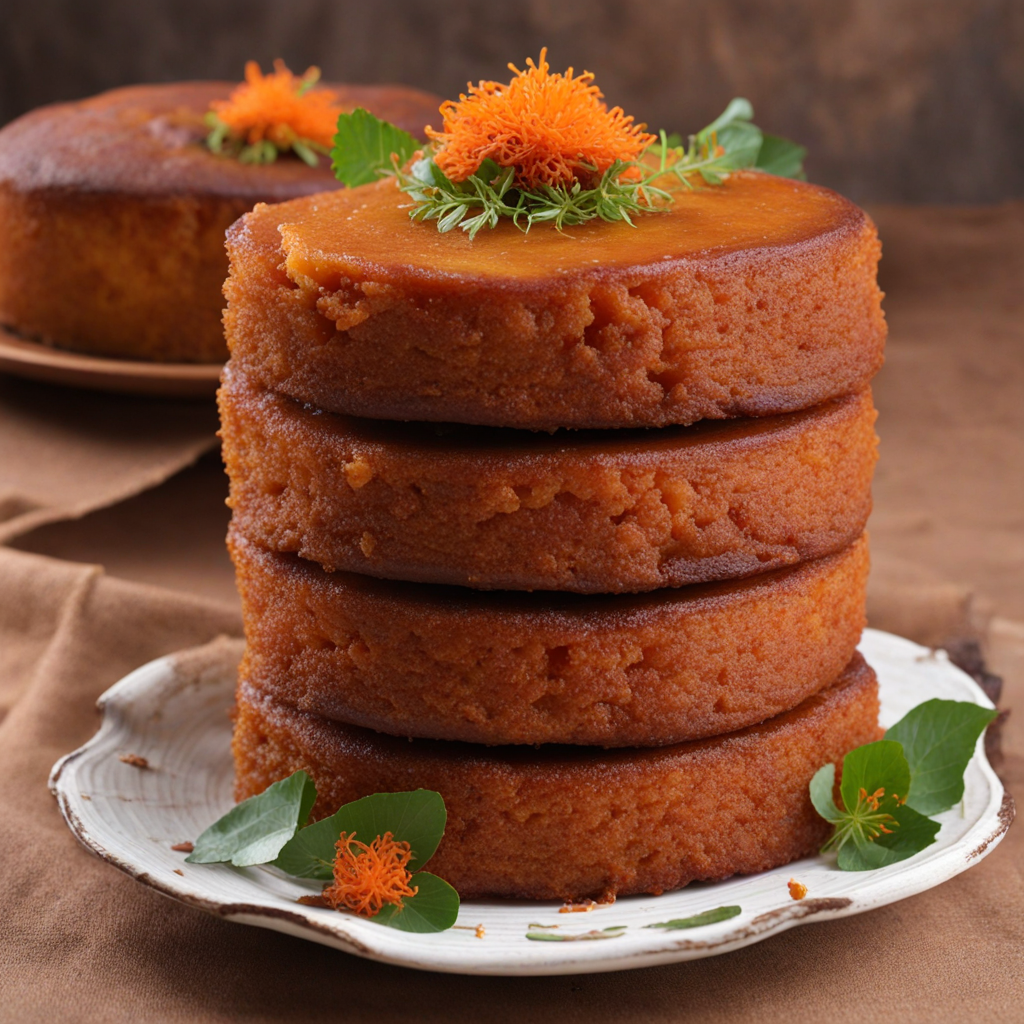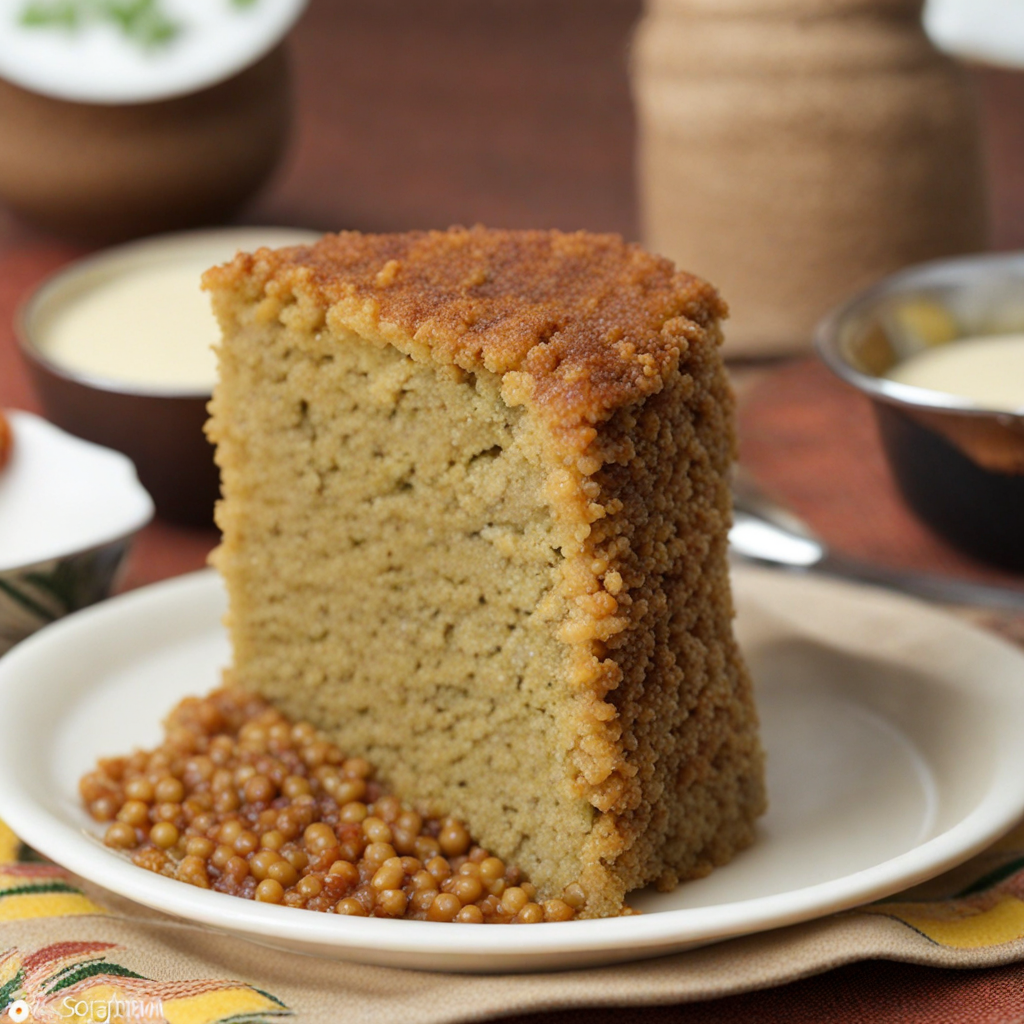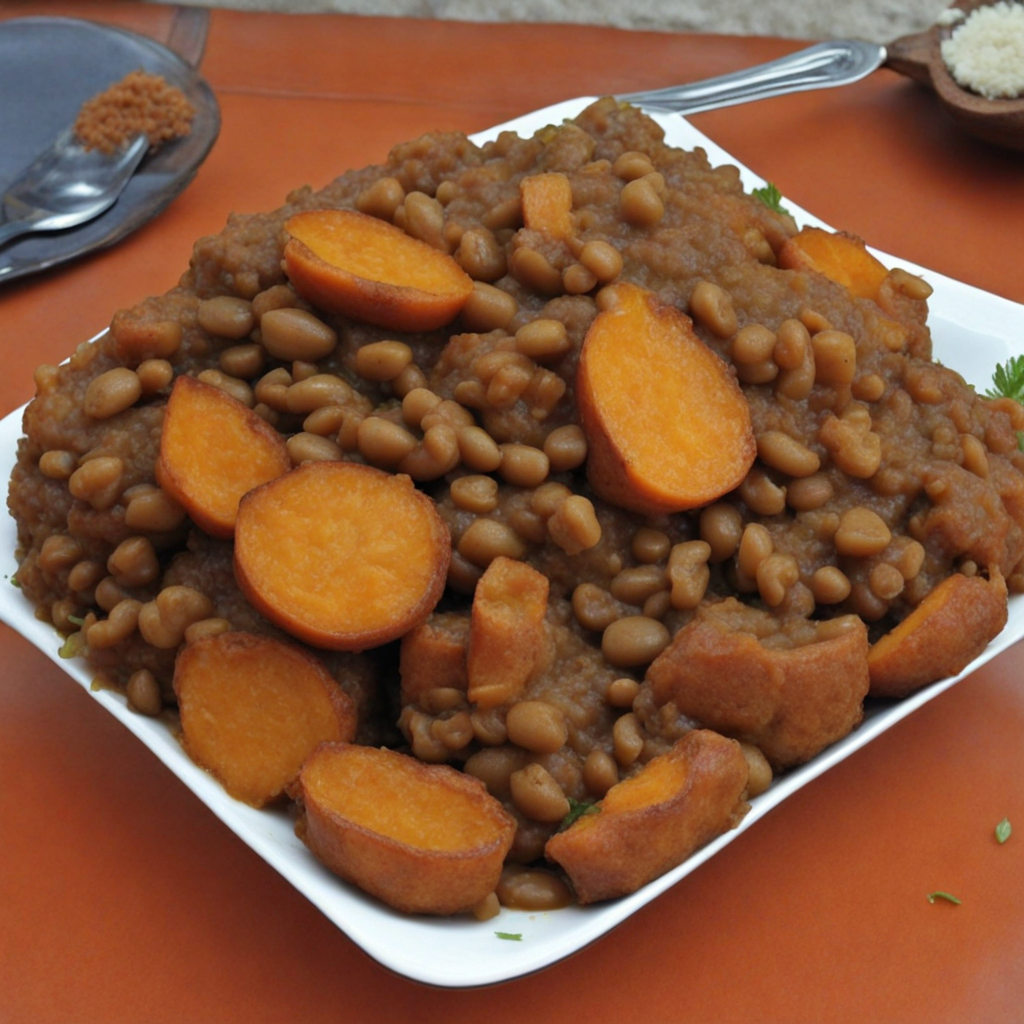Umutsima w'ibijumba
Umutsima w'ibijumba is a traditional Rwandan dish that showcases the country's rich agricultural heritage, primarily featuring sweet potatoes as its core ingredient. The dish is celebrated for its simplicity and wholesome flavors, combining the natural sweetness of the sweet potatoes with a subtle earthiness that reflects the fertile Rwandan soil. It is often prepared by boiling or steaming the sweet potatoes until soft, then mashing them to create a smooth, creamy texture that is both comforting and satisfying. The vibrant orange or yellow hue of the sweet potatoes adds a visually appealing element to the dish, inviting you to indulge in its delightful taste. This dish is typically served as a staple food alongside various accompaniments, such as vegetables, beans, or meat, making it a versatile choice for any meal. The creamy mash of sweet potatoes can be enjoyed plain or enhanced with a drizzle of local honey or a sprinkle of ground peanuts for added flavor and richness. Its natural sweetness pairs beautifully with savory dishes, creating a balanced dining experience that reflects the harmonious blend of flavors found in Rwandan cuisine. Whether enjoyed at home or in a local eatery, Umutsima w'ibijumba is a comforting reminder of the warmth and hospitality of Rwandan culture. Umutsima w'ibijumba is not only delicious but also packed with nutrients, making it a healthy choice for those looking to explore new culinary experiences. Sweet potatoes are rich in vitamins, particularly vitamin A, and are a great source of dietary fiber, contributing to a nutritious diet. As you savor this dish, you're not just tasting the essence of sweet potatoes but also experiencing a connection to the land and people of Rwanda. This dish embodies the spirit of communal eating, often enjoyed in gatherings where family and friends come together to share in the joy of good food and conversation.
How It Became This Dish
Umutsima w'ibijumba: A Culinary Journey Through Rwandan Heritage #### Origins and Ingredients Umutsima w'ibijumba, a traditional Rwandan dish, is a delightful mash made primarily from sweet potatoes (ibijumba) and often combined with other staples such as maize flour. This dish holds a significant place in Rwandan cuisine and embodies the agricultural practices and cultural values of the Rwandan people. The sweet potato is believed to have originated in Central and South America, but it was introduced to Africa in the 17th century. Its adaptability to various climates made it a staple crop across the continent. In Rwanda, the sweet potato flourishes in the rich volcanic soils, particularly in the Northern and Western provinces. The cultivation of sweet potatoes is not just about sustenance; it symbolizes resilience and the ability to thrive in challenging environments, especially in a country that has faced numerous adversities throughout its history. The art of preparing Umutsima w'ibijumba often involves steaming or boiling the sweet potatoes until they become soft, then mashing them into a smooth, creamy consistency. Traditionally, this dish would be prepared in large quantities, making it a communal experience, essential for family gatherings and celebrations. #### Cultural Significance Umutsima w'ibijumba is more than just a dish; it is a cultural emblem that reflects the Rwandan way of life. In Rwandan culture, food is deeply intertwined with social relationships and communal values. Preparing and sharing meals like Umutsima w'ibijumba fosters community bonds and strengthens familial ties. This dish is often served during significant occasions such as weddings, family reunions, and national holidays. It is a symbol of hospitality, where offering Umutsima to guests signifies warmth and welcome. In rural areas, where many families still rely on subsistence farming, the preparation of Umutsima w'ibijumba can be a collective effort, bringing together family members and neighbors in a spirit of cooperation. Moreover, Umutsima w'ibijumba has historical roots tied to Rwandan traditions and the agrarian lifestyle of its people. The act of growing, harvesting, and preparing food has been central to the Rwandan identity. During the colonial period and subsequent times of upheaval, food became a means of resistance, survival, and cultural preservation. The resilience reflected in the cultivation and consumption of traditional foods, including Umutsima w'ibijumba, became a source of strength for communities navigating social and political challenges. #### Development Over Time The development of Umutsima w'ibijumba over time can be viewed through the lens of Rwanda's historical transformations. The country has undergone significant changes, from pre-colonial societies to colonial rule and post-colonial reconstruction. Each phase has influenced the culinary landscape, including the ingredients used and the methods of preparation. During the colonial period, the introduction of new crops and agricultural methods altered the traditional ways of farming. While sweet potatoes remained a staple, maize and other crops became integral to Rwandan diets, leading to variations in Umutsima w'ibijumba. Innovative cooks began to incorporate maize flour into the dish, resulting in a different texture and flavor, which is now common in many households. Following the 1994 genocide, Rwanda was faced with immense challenges in rebuilding its society. The government and various organizations focused on food security and nutrition as vital components of recovery. Traditional foods, including Umutsima w'ibijumba, gained renewed attention for their nutritional value and cultural significance. Efforts to promote indigenous crops and traditional dishes were seen as a way to restore national pride and identity. In contemporary Rwanda, Umutsima w'ibijumba is not only cherished in homes but has also found its way into restaurants and hotels, catering to both locals and tourists. This has led to a revival of interest in traditional Rwandan cuisine, with chefs experimenting with new presentations while respecting age-old recipes. The dish's versatility allows it to be paired with various accompaniments, such as beans, meat, or vegetables, reflecting the evolving tastes and preferences of modern diners. #### Umutsima w'ibijumba in the Modern Context Today, Umutsima w'ibijumba stands as a testament to Rwanda's rich culinary heritage. It embodies the spirit of sustainability, as the ingredients are often locally sourced from smallholder farmers who practice organic farming methods. This aligns with a global trend toward sustainable eating and a return to traditional practices that prioritize health and well-being. In addition to its nutritional benefits, Umutsima w'ibijumba is gaining recognition in the context of food tourism. As travelers seek authentic culinary experiences, Rwandan dishes, with Umutsima w'ibijumba at the forefront, are celebrated for their flavors and the stories they tell. Cooking classes and culinary tours often include demonstrations on how to prepare this dish, allowing visitors to engage with Rwandan culture in a meaningful way. Moreover, the resurgence of interest in traditional foods has led to initiatives aimed at preserving and promoting Rwandan culinary heritage. Organizations are working to document recipes, educate the younger generation about their cultural significance, and promote local ingredients. This not only helps safeguard culinary traditions but also empowers local communities economically. #### Conclusion Umutsima w'ibijumba is a dish that encapsulates the essence of Rwandan culture, history, and resilience. From its origins rooted in agricultural practices to its role as a symbol of community and hospitality, this dish has evolved over time, adapting to changing circumstances while retaining its core significance. As Rwanda continues to progress, Umutsima w'ibijumba remains a cherished element of its culinary identity, connecting the past with the present and future. Through this dish, the stories of the Rwandan people are told, preserving their rich heritage for generations to come.
You may like
Discover local flavors from Rwanda







